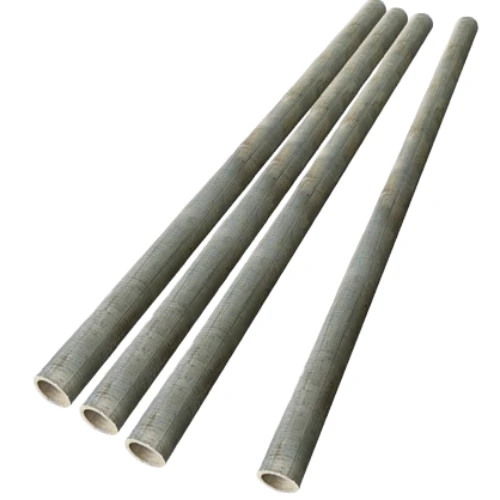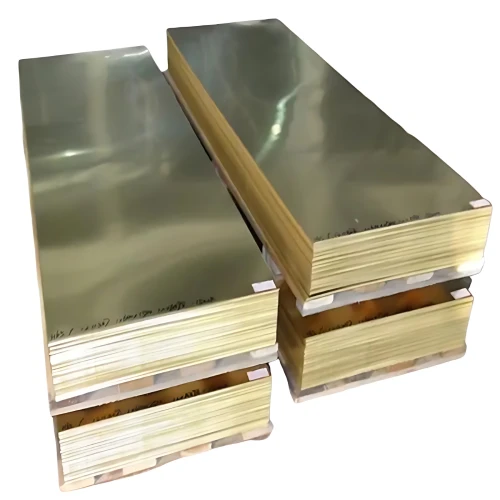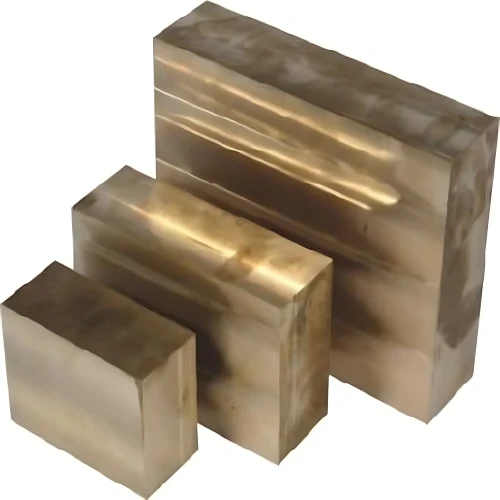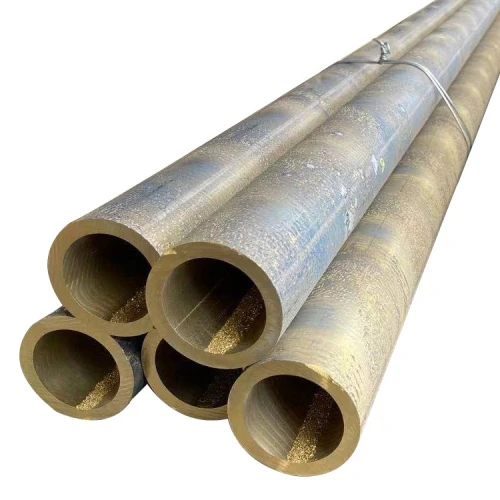C87600: Low Zinc Silicon Brass for Strength and Corrosion Resistance
C87600 is a copper alloy belonging to the low zinc silicon brass family. It's known for its good
combination of strength, wear resistance, and excellent corrosion resistance, making it suitable for various
industrial applications, particularly those exposed to harsh environments. Unlike some other silicon
brasses, C87600 has a lower zinc content, offering some advantages.
Table: Key Properties of C87600
| Property |
Description |
| Chemical Composition |
- Primarily Copper (Cu): Balance <br> - Silicon (Si): 3-4% <br> - Lead (Pb): No Lead
(Pb-free) <br> - Zinc (Zn): Low (typically less than 1%) <br> - Other (Fe, etc.):
Trace amounts
|
| Mechanical Properties |
- Good tensile and yield strength <br> - Good wear resistance <br> - Excellent
machinability due to lead-free nature <br> - Good corrosion resistance
|
| Common Brands (By Country) |
- Europe: CuSi3 [Europe], CW606 [Europe] <br> - US: Low Zinc Silicon
Brass
|
Important Note: The specific brand names might vary depending on the supplier.
Common Questions and Answers:
What are the advantages of C87600 compared to other silicon brasses?
C87600 offers some advantages over other silicon brasses, particularly those with higher zinc content (e.g.,
C85200):
Improved machinability: The lower zinc content in C87600 translates to better machinability
compared to high-zinc silicon brasses. This can be beneficial for applications requiring complex machining
processes.
Reduced stress corrosion cracking: In certain environments, high-zinc brasses are
susceptible to stress corrosion cracking. C87600's lower zinc content can mitigate this risk.
What are the typical applications of C87600?
C87600 finds use in various industries due to its well-rounded properties, particularly in environments with
corrosion concerns:
Marine applications: Due to its excellent corrosion resistance in saltwater environments,
C87600 is used for valves, fittings, and other marine hardware.
Heat exchangers: C87600 can be suitable for heat exchangers operating in corrosive
environments.
Chemical processing equipment: Tanks, pipes, and other components exposed to chemicals can
benefit from C87600's corrosion resistance.
Plumbing components: C87600 can be used for some plumbing components due to its corrosion
resistance and machinability (depending on regulations).
How does C87600 compare to leaded silicon brass (e.g., C87800)?
C87600 offers several advantages over leaded silicon brass (C87800):
Lead-free: C87600 is environmentally friendly and avoids health hazards associated with
lead during machining.
Improved machinability: As mentioned earlier, the lower zinc content in C87600 translates
to better machinability.
However, C87800 might be slightly more affordable due to the absence of lead and might offer a slight edge
in terms of wear resistance in some applications.
Important Note: Always consult with a material engineer or supplier to identify the most
suitable copper alloy for your specific application considering factors like strength, wear resistance,
corrosion resistance, machinability, regulatory compliance (lead content), and cost.



